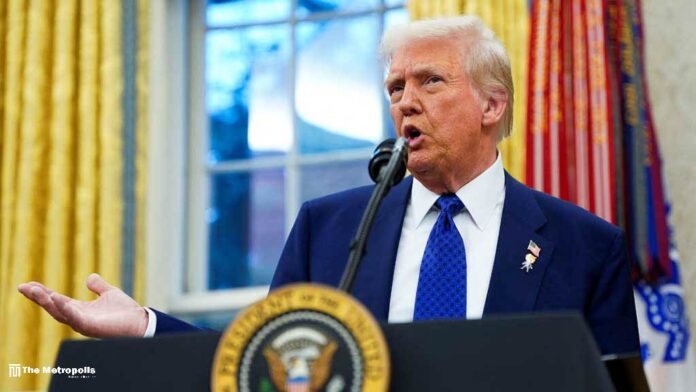A federal judge ruled on Wednesday that Donald Trump’s administration can proceed with its federal worker buyout program, dealing a blow to unions attempting to block the initiative. The ruling supports Trump’s efforts to restructure and reduce the size of the U.S. government.
The decision could enable the administration to move forward quickly with finalizing the program, though unions may seek intervention from another court to halt it.
U.S. District Judge George O’Toole in Boston lifted an earlier order he had issued that temporarily paused the program at the request of unions representing more than 800,000 federal employees. He determined that the unions lacked the legal standing necessary to challenge the directive.
The American Federation of Government Employees and other unions have argued that the administration’s “deferred resignation” offer to over two million federal civilian employees is unlawful.
“The unions do not have the required direct stake in the Fork directive but are challenging a policy that impacts others, specifically executive branch employees,” O’Toole wrote. “This is not sufficient.”
The Office of Personnel Management (OPM), which announced the buyout program in a January 28 email titled “Fork in the Road,” informed employees on Monday that it intends to close the program to new applicants as soon as legally allowed.
As of Friday, approximately 65,000 federal employees had opted into the buyouts, a White House official confirmed. The Trump administration is ramping up efforts to implement significant job reductions across government agencies.
The White House declined to comment, and lawyers representing the unions did not issue an immediate response. However, the unions may still appeal the decision and request a court injunction to block the program.
Unions Oppose Program as ‘Arbitrary’
The unions that filed the lawsuit contend that the initiative, introduced in January, is unlawful and that OPM lacks the authority to implement it.
Trump, who began his second term on January 20, has appointed Elon Musk as a “special government employee” to oversee an initiative called the Department of Government Efficiency. This effort aims to reduce federal spending and restructure the country’s 2.2 million-person federal workforce, potentially eliminating thousands of jobs.
Democrats and other critics have accused Musk, the CEO of Tesla and SpaceX, of improperly taking control of federal operations. Some federal employees have staged protests in response to Musk’s involvement.
In an email sent to nearly all federal employees last month, OPM outlined that workers could resign immediately while retaining full pay and benefits until September 30.
The email specified that employees could stay on the payroll without being required to work in person, and their job responsibilities could be reduced or eliminated in the interim. Those interested needed only to reply with the word “resign” to participate.
The structure of this email mirrored a message Musk had sent to Twitter employees after acquiring the platform, now rebranded as X, in 2022.
The U.S. Department of Justice defended the initiative, describing it as a “humane off-ramp” for employees dissatisfied with Trump’s broader plans to downsize the federal workforce and curtail remote work.
The buyout applies to approximately two million civilian federal employees, excluding those in immigration and national security roles, as well as U.S. Postal Service workers.
As the deadline approached, the Trump administration repeatedly warned that most federal agencies would face downsizing, which many employees viewed as pressure to accept the buyout offer.
Legal Battle Over Federal Workforce Reduction
In their lawsuit, the unions argued that OPM’s directive was “stunningly arbitrary” and violated the Antideficiency Act, a federal law that prohibits agencies from exceeding their allocated budgets.
By encouraging mass resignations without considering agency functions, job duties, or institutional knowledge, OPM was disregarding the potential harm to government operations, the unions contended.
At the unions’ request, O’Toole had previously postponed an initial resignation deadline from February 6 to Monday. On that day, he extended the pause while reviewing the case.
The unions sought a full delay to allow time for further legal challenges and to ensure employees had sufficient information before making their decisions.



